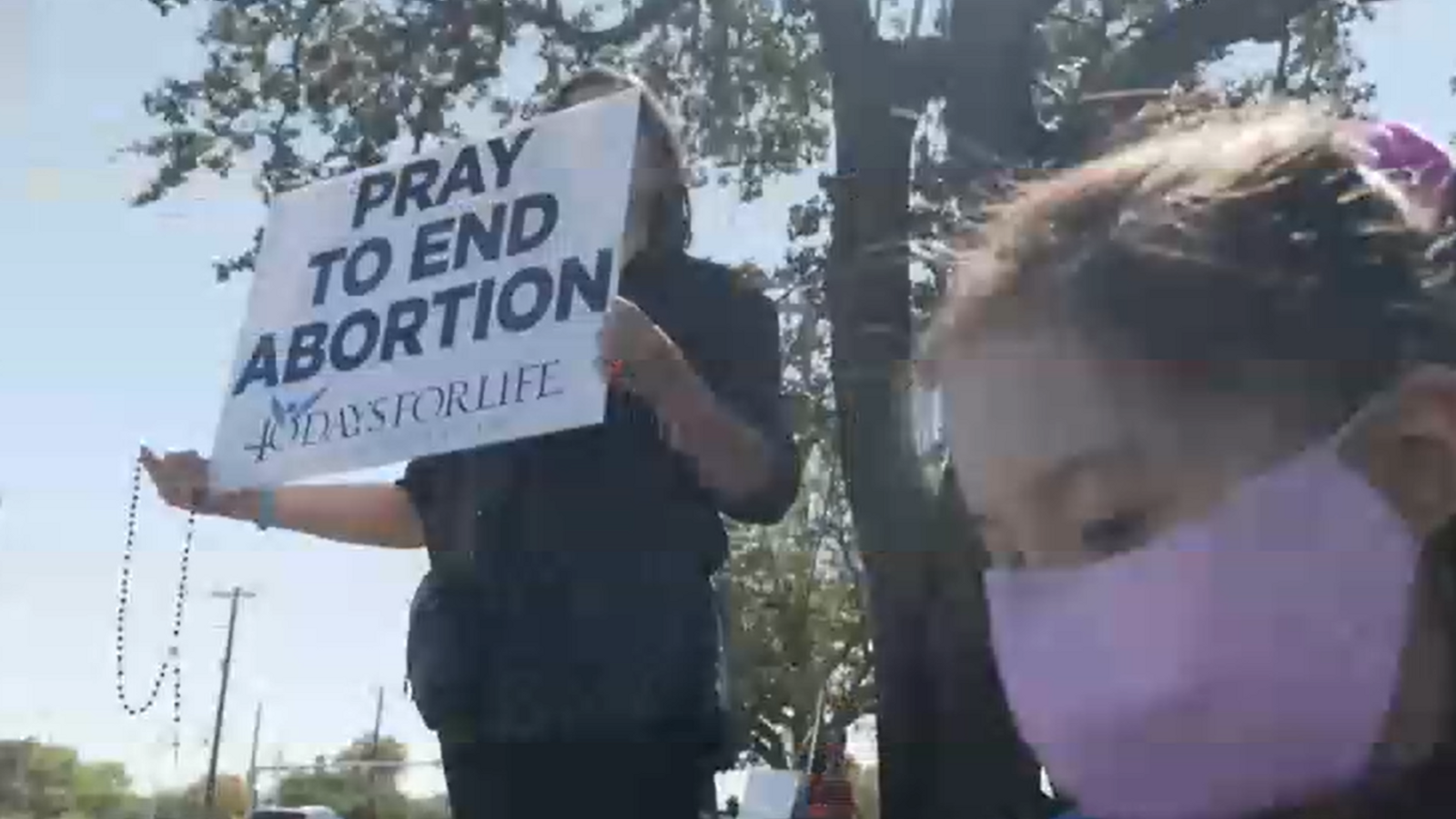Outside Planned Parenthood abortion clinic in San Antonio, a pro-life demonstrator kneels on a pavement beside a busy freeway, holding a wooden crucifix aloft as the occasional passing driver honks their horn in support.
Others shout out of their window for him to “go home”.
Texas is the flashpoint in a new wave of restrictive abortion laws across America.
Last month, new rules were introduced meaning women in the state cannot terminate their pregnancy here once a foetal heartbeat is detected, which is often as early as six weeks and many times before they even realise they’re pregnant.
It has caused widespread outrage and created hundreds of so-called abortion refugees, with many women left with no option but to travel outside Texas in order to terminate a pregnancy.
Destiny Wilson considers herself one of the lucky ones having experienced symptoms early in her pregnancy, alerting her to the fact that birth control had failed.
She had to go back to a clinic in San Antonio every day for a week before she returned a positive ultrasound test and was able to get an abortion.
Woman with Down’s syndrome loses case to prevent abortions on unborn babies with disabilities after 24 weeks
Abortion: Court to rule on legal bid to ban termination of babies with disabilities after 24 weeks
Uma Thurman reveals teenage abortion as she criticises ‘horror’ of Texas ban
“It was frustrating and scary,” she says, “knowing that within 48 hours of a positive ultrasound there might be a foetal heartbeat and then I would have to pay to travel out of state to get an abortion.
“There were a lot of young girls inside the clinic, one of which I will never forget.
“She appeared to be about 15 years old and she was too far along in her pregnancy and could not access an abortion and she was crying and begging the doctor to ‘not let her carry this monster’s child’.”
Unlike previous abortion laws which have been enforced by government, the so-called “heartbeat bill” is enforced everyday, private citizens who can sue abortion providers and even taxi drivers taking a woman to a termination appointment for a minimum of $10,000.
This has particularly angered women’s rights activists like Diana Gomez of Progress Texas.
She said: “It’s creating vigilante bounty hunters now across the country to be able to victimise someone who’s just trying to help someone to access health care, and it’s terrible that now anyone can do this.
“One of my biggest fears is that this is also a method for any former domestic violence abuser to keep further traumatising their victim in Texas, even though this person might have come to Texas escape, by attempting to sue their friend or family member or healthcare provider for helping them get abortion.”
The Biden administration has vowed to oppose what is, in effect, a total abortion ban in Texas and the federal court will on Friday consider a legal challenge by the Justice Department to the “heartbeat bill”.
But the architect of the law, Texas state senator Bryan Hughes, is standing by his divisive piece of work, defending the fact there are no exceptions even in the case of incest or rape.
“That’s a horribly traumatic situation that we can never imagine,” he says. “We’re going to punish that rapist. But if we believe that little baby growing inside her mother’s womb is a human being worthy of protection, we’re going to protect that life.
“We don’t want to make it worse by taking the life of the unborn child.”
The US Supreme Court decided against blocking the Texas law, despite receiving applications to do so from pro-choice and women’s groups.
The court has a newly right-leaning majority. In December, it will consider the landmark Roe v Wade 1973 ruling which legalised abortion nationwide, a clear indication that one of America’s longest culture war conflicts is intensifying.






















